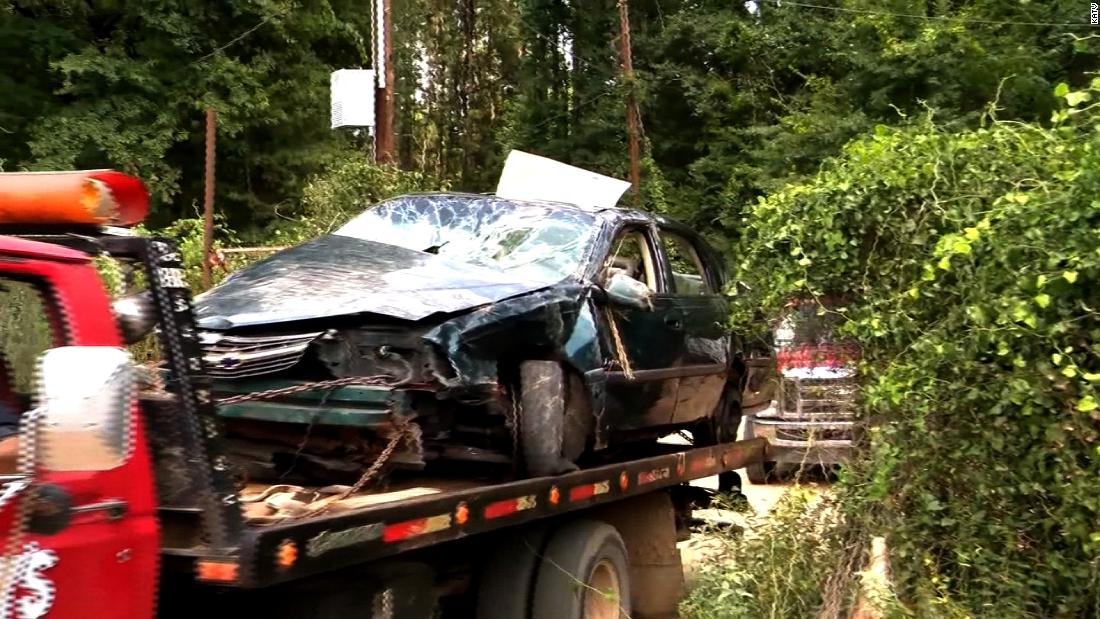Mom Bathes After DUI Crash, Toddler Dies: A Heartbreaking Tale And What We Can Learn
This story is not just about a tragic event; it's about understanding the consequences of our actions, learning from them, and ensuring we don't let history repeat itself. The phrase "Mom bathes after DUI crash, toddler dies" has become a chilling reminder of how quickly life can change due to poor decisions. This isn't just a headline—it's a wake-up call for all of us.
In this world where distractions are everywhere, it's easy to overlook the importance of staying sober behind the wheel. But when tragedy strikes, as it did in this case, the impact is felt not only by the families involved but by society as a whole. The story of a mom who decided to take a bath after causing a crash that claimed the life of her toddler is one that demands attention, empathy, and action.
It’s crucial to delve into the details of this incident, explore the factors that led to it, and understand how we can prevent similar tragedies in the future. This article isn't just about recounting facts—it's about creating awareness, fostering responsibility, and helping others avoid making the same mistakes.
Understanding the Incident: The Basics
Let's break down what happened. On a seemingly ordinary day, a mother made the devastating decision to drive under the influence (DUI), leading to an accident that claimed the life of her own child. Instead of seeking help or addressing the situation immediately, she chose to take a bath, leaving her toddler unattended. The sequence of events is both shocking and heartbreaking, yet it serves as a stark reminder of the dangers of impaired driving.
Key Details of the Crash
According to reports, the crash occurred on a busy road during rush hour. Witnesses described seeing the vehicle swerving erratically before colliding with another car. Emergency services were called to the scene, but unfortunately, the toddler was pronounced dead shortly after arrival at the hospital. The mother, however, showed no immediate signs of distress and was later found taking a bath at home.
- The crash involved two vehicles.
- The toddler was in the back seat without proper restraints.
- Witnesses reported erratic driving behavior prior to the collision.
- The mother faced multiple charges, including DUI and child endangerment.
Why Does This Matter? Exploring the Broader Implications
This incident isn't just about one person's bad judgment; it's about the ripple effect of poor choices. When someone drives under the influence, they put countless lives at risk—not just their own, but also those of their passengers, other drivers, and pedestrians. The loss of a young life is tragic, but the emotional toll on the surviving family members and the broader community is immeasurable.
Child Safety in Cars: A Critical Conversation
One of the most alarming aspects of this case is the fact that the toddler was not properly restrained in the vehicle. Studies show that using appropriate child safety seats significantly reduces the risk of injury or death in car accidents. Yet, many parents overlook this crucial step, often with devastating consequences.
Here are some statistics to consider:
- According to the CDC, car crashes are a leading cause of death for children in the U.S.
- Properly installed car seats reduce the risk of fatal injury by 71% for infants and 54% for toddlers.
- Despite these facts, an estimated 35% of children are not properly restrained when riding in vehicles.
The Role of Impaired Driving in Fatal Accidents
Driving under the influence is one of the leading causes of motor vehicle fatalities worldwide. Alcohol impairs judgment, slows reaction times, and affects coordination—making it extremely dangerous to operate a vehicle while intoxicated. In the U.S. alone, nearly 30 people die every day as a result of drunk driving accidents.
What Happens When You Drive Drunk?
Alcohol affects the brain in ways that make driving extremely risky. Here's a quick breakdown:
- Impaired judgment: Drivers may take unnecessary risks or fail to recognize hazards.
- Slower reaction times: Even a slight delay can mean the difference between avoiding an accident and causing one.
- Reduced coordination: Controlling a vehicle requires precision, which alcohol disrupts.
These factors combined create a perfect storm of danger for everyone on the road.
Legal Consequences of DUI
When someone chooses to drive under the influence, they aren't just risking their own life—they're breaking the law. DUI laws vary by jurisdiction, but the penalties can be severe, including fines, license suspension, mandatory counseling, and even imprisonment. In cases involving fatalities, the consequences are even more dire.
Potential Charges in DUI Cases
In the case of the mother mentioned earlier, she faced several charges:
- DUI (Driving Under the Influence)
- Child endangerment
- Involuntary manslaughter
- Reckless driving
These charges reflect the gravity of her actions and the harm caused by her decisions.
Preventing Future Tragedies: What Can We Do?
While no one can undo the damage already done, we can work together to prevent similar tragedies from occurring in the future. Education, awareness, and accountability are key components in reducing impaired driving incidents.
Raising Awareness About Impaired Driving
Campaigns aimed at educating the public about the dangers of drunk driving have proven effective in reducing incidents. Organizations like Mothers Against Drunk Driving (MADD) and the National Highway Traffic Safety Administration (NHTSA) provide valuable resources and support for those affected by DUI-related accidents.
Some effective strategies include:
- Hosting community events to discuss the dangers of impaired driving.
- Implementing stricter DUI laws and enforcement measures.
- Encouraging the use of designated drivers or ride-sharing services.
The Importance of Accountability
Holding individuals accountable for their actions is essential in deterring future offenses. This doesn't mean simply punishing offenders—it means addressing the root causes of their behavior and providing them with the tools they need to change. For example, mandatory counseling and substance abuse treatment programs can help prevent repeat offenses.
Supporting Families Affected by DUI
The emotional and financial toll of losing a loved one to a DUI accident can be overwhelming. Support groups and counseling services offer valuable assistance to families navigating this difficult time. By fostering a sense of community and offering resources, we can help those affected by such tragedies begin to heal.
Conclusion: Learning from Tragedy
The story of the mom who bathed after a DUI crash that killed her toddler is a painful reminder of the consequences of poor decisions. While we can't change the past, we can learn from it and work toward a safer future. By raising awareness, promoting accountability, and supporting those affected by DUI-related accidents, we can make a difference.
So, what can you do? Start by committing to never drive under the influence. Encourage your friends and family to do the same. Support organizations working to combat drunk driving, and advocate for policies that prioritize safety on our roads.
Together, we can honor the memory of those lost to DUI accidents by ensuring that their stories inspire change. Share this article, start conversations, and take action. Let's make sure no one else has to experience the pain and heartbreak of losing a loved one to a preventable tragedy.
Table of Contents
- Understanding the Incident: The Basics
- Why Does This Matter? Exploring the Broader Implications
- Child Safety in Cars: A Critical Conversation
- The Role of Impaired Driving in Fatal Accidents
- Legal Consequences of DUI
- Preventing Future Tragedies: What Can We Do?
- The Importance of Accountability
- Supporting Families Affected by DUI
- Conclusion: Learning from Tragedy


